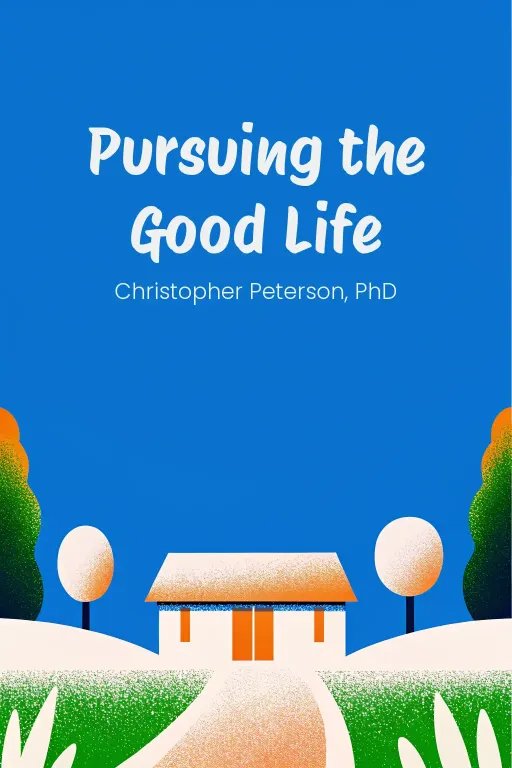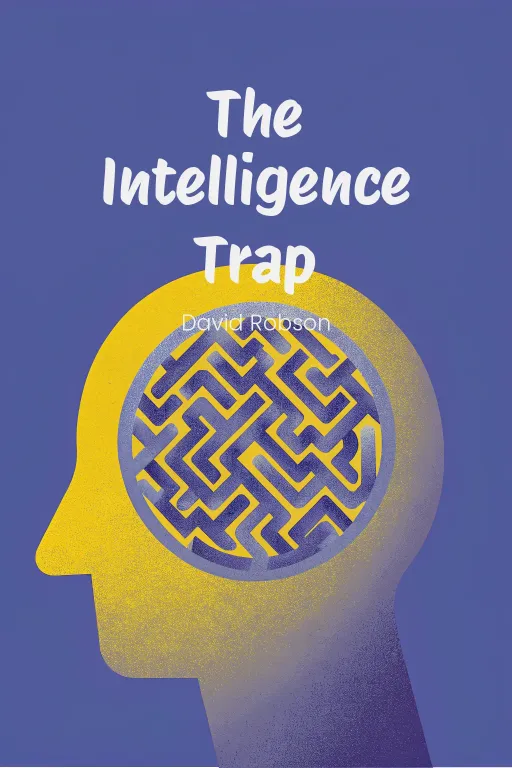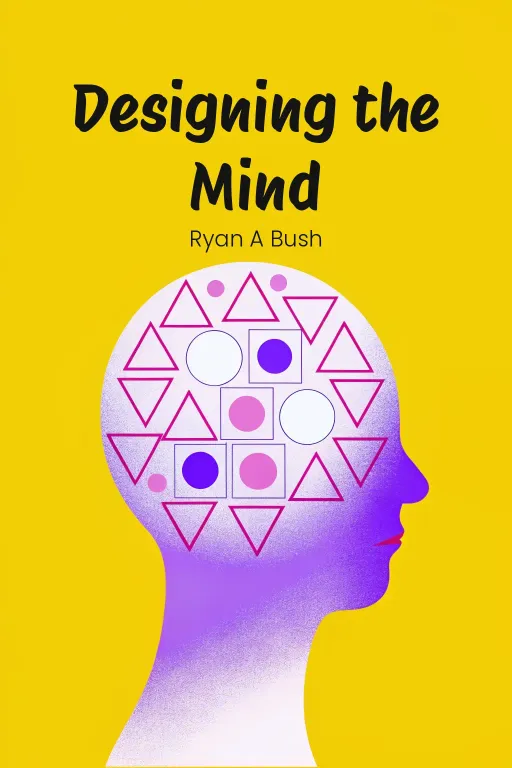
Success: The "Now What?" Game
Podcast by The Mindful Minute with Autumn and Rachel
Why Success Doesn't Feel Like It Should... and What to Do about It
Success: The "Now What?" Game
Part 1
Autumn: Hey everyone, welcome to the show! Let's jump right in with a question: Has anyone ever crushed a goal – nailed that promotion, launched a project, you know, finally achieved something big – only to be hit with this weird sense of unease afterwards? If that mix of excitement and "ugh, now what?" sounds familiar, you're definitely not alone. Rachel: Yeah, that’s the moment where you think, "Okay, wait a minute, shouldn't I be like, ecstatically happy right now? So why am I already stressing about climbing the next mountain?" And that, my friends, is what Laura Gassner Otting cleverly calls "Wonderhell." Autumn: Exactly! Her book “really” dives into this whole paradox of success. It's like, the joy of achieving something amazing comes bundled with a whole new set of pressures and challenges. And instead of, you know, just fighting it, she argues that we can actually thrive in it. By “really” embracing our ambition, redefining what success actually means to us, and just facing the discomfort head-on. Rachel: Hmm, so it sounds like a mix of life coaching, a little bit of philosophy, and just enough existential angst to make things interesting. But seriously, how do we actually navigate this "Wonderhell" thing without completely losing it? Autumn: That's exactly what we're going to unpack today. We'll look at the emotional rollercoaster that comes with success, give you some practical tools to deal with those pesky self-doubts and outside expectations, and, most importantly, show you how to turn those moments of "ugh" into stepping stones towards a much more fulfilling life. Rachel: So basically, success is like a theme park: thrilling, full of unexpected twists, and might just leave you questioning all your life choices. Buckle up, everyone, it's gonna be a ride.
Understanding Wonderhell
Part 2
Autumn: Okay, so picking up on this theme park idea of success, let’s really dive into this “Wonderhell” thing Otting talks about. Rachel, what’s the core idea that makes this concept click? Rachel: Right, so what’s the foundational principle that brings this whole "Wonderhell" concept together, Autumn? Autumn: Well, at its heart, Wonderhell is about shattering the illusion that success is some final destination. We’re so often taught that it’s this finish line – you cross it, and bam, you’re fulfilled, happy, done. But Otting flips it. She says success isn’t an endpoint; it’s more like a starting point. It’s that moment when every achievement opens up a new set of possibilities, often mixed with pressure, you know? Rachel: So, less like finishing a marathon and more like unlocking the door to another, even longer race? Keeps the blood pumping, I guess. Autumn: Exactly! It’s this repeating cycle where winning isn’t about resting; it’s about fueling up. Because after every win, something inside us goes, "Okay, now what?" That’s where the friction comes in; that mix of joy and stress that defines Wonderhell. Rachel: Right, yeah, success basically ups the ante every single time. Like, you think about a sales rep who lands their first big client, and suddenly everyone’s watching to see what their next move is. Or entrepreneurs – one minute you’re celebrating the launch, the next you're sweating payroll and scaling. It never actually stops. Does it? Autumn: Exactly. Otting’s point is that this drive for more actually isn’t a bad thing. But, it can grind you down if you don’t change your mindset. Instead of seeing these pressures as walls, you need to see them as signs you’re growing. Success isn’t just about ambition; it’s also about knowing yourself and being able to adapt. Rachel: Okay, let's get to the emotional part, because "Wonderhell," as you're laying it out, sounds pretty darn exhausting. What sparks that swing between feeling pumped and feeling seriously anxious? And how does Otting suggest we find some balance on that pendulum? Autumn: Good point. On one side, success brings this huge rush of happiness and feeling like you’re worth something. You did the work, took the risks, proved you could do it – it feels awesome. But the second you get to that high, something changes. Thoughts of "Can I keep this up?" or "Was this just luck?" start creeping in. That's where the good feelings meet the not-so-good stuff. Rachel: And there’s that lovely little voice that whispers, "You barely squeaked by last time – what makes you think you're ready for what's next?" You know? It’s the gift that just keeps on giving. Autumn: Exactly! But Otting flips it again here. She says that discomfort isn’t a warning sign; it’s actually a green light. Take Lydia Fenet, for example, who's an auctioneer at Christie’s. Early on, she was trying so hard to be what she thought a pro should be. You know, stiff, buttoned-up – basically disappearing. But one night, super tired and pregnant, she just made a joke on stage. Guess what? The crowd loved it. Rachel: So, she dropped the whole “perfect” act, went for being real, and it worked out, right? Sounds easy, but I bet that took some guts in the moment. Autumn: Big time. It could have gone either way. But when Lydia decided to be herself, using her own humor, it not only made people like her more; it changed how she saw success. Instead of trying to fit in, she felt strong by using that discomfort as her creative fuel. Rachel: So, Otting’s saying discomfort doesn’t just pop up out of nowhere; it’s a signal. A signal you’re moving up, becoming a bigger version of yourself. The real question is what do we do when that haunted house of self-doubt invites us in? Autumn: Right on. If you start seeing those moments of doubt and pressure as proof you’re growing, Wonderhell starts to feel less scary and more full of potential. It doesn’t get rid of the anxiety, but it helps you face it with curiosity and courage. Rachel: Okay, so we’ve hit the high and low emotions, but let’s get practical. If success is this never-ending Ferris wheel, how does Otting suggest we adjust our expectations, so we don’t just crash and burn? Autumn: She uses that Ferris wheel to show how success widens your view the higher you climb. But the tricky thing is; each new height shows you even more peaks in the distance. Adjusting your expectations really starts with seeing that success isn’t a fixed thing. It’s something you do over and over. Otting wants us to treat it like a feedback loop: see what worked, admit what didn’t, and then change as you go. Rachel: So, less about climbing to “the top” and more about enjoying the actual ride. Makes sense, but what about when that ride feels like it’s about to throw you off? Autumn: That’s where bounce-back comes in. Otting says feeling happy isn’t about stopping your ambition; it’s about seeing growth as a never-ending thing. Instead of holding onto the dream of “getting there,” we accept that discomfort and tension are just part of changing. Rachel: And if I’m hearing you right, she’s saying we should see those moments not as a crisis, but as a chance to check our course and adjust. It reminds me of that saying: "Don’t let your victories puff you up, and don’t let your failures crush you." Autumn: Yes! It’s about realizing that winning doesn’t last forever and using it to push yourself forward. Success, then, is never about being done. It’s about always becoming. Wonderhell might sound scary, but it can be the thing that turns your ambition into a plan for really growing. Rachel: So, basically no rest stops in this theme park, huh? That Ferris wheel just keeps spinning, reminding you there’s always another challenge coming. Got it. Let me just catch my breath over here for a second!
Navigating Challenges
Part 3
Autumn: Okay, take a breath, everyone. Because here's where it gets really interesting. Now that we've unpacked the emotional landscape of Wonderhell, let's dive into some practical ways to navigate it. It's not enough just to understand the discomfort, right? Otting’s approach is all about actionable strategies for transforming that unease into…well, progress. Let’s start with one of the biggest hurdles out there: impostor syndrome. Rachel: Ugh, impostor syndrome. The classic "Who do you think you are?" playing on repeat in your head. It always feels like the uninvited guest crashing your success party. So, where does Otting stand on this? Is she saying we should just ignore that inner critic completely, or should we actually listen to it? Autumn: Neither, actually. Otting argues that impostor syndrome isn't inherently a problem – it's a signal. Think of it as an internal indicator that you're stepping way outside your comfort zone. So, instead of letting it paralyze you, she suggests reframing it as proof that you're pushing boundaries and, ultimately, growing. Rachel: Alright, so instead of treating it like a villain, you rebrand it as... an ally? Just one with really questionable social skills, I guess? Got it. Any specific stories or examples of people who've actually flipped that impostor mindset that she mentions? Autumn: Definitely! She introduces this metaphor of "Impostortown," – a place where people are constantly wrestling with self-doubt, that fear of being exposed as a fraud. But she flips the script by encouraging us to see residency in Impostortown as temporary…and necessary. For instance, Otting talks about those moments when people start climbing a new ladder of success, you know? Whether it's a promotion, starting a new business, taking on a big creative project… That creeping doubt, that "I don't belong here" feeling? That’s actually proof that they're in uncharted, exciting territory. Rachel: So, basically, if you’re feeling impostor syndrome, it's because you're playing a bigger game. That makes sense in theory, but…is it really that easy to rebrand self-doubt? Seems like a hard sell when that voice is screaming at full volume in your head. Autumn: No, definitely not a quick fix. Otting acknowledges that overcoming impostor syndrome requires confronting it head-on. You name those doubts, and then you actively decide to move forward anyway. It's about replacing that fear-focused mindset with one that's centered on personal growth. So, acknowledge that you might not have all the answers, sure, but that doesn't diminish your right to pursue what inspires you. She even suggests maybe journaling and reflecting on small wins as a way to actually prove to yourself that you belong in the game you're playing. Rachel: Okay, I can see how reframing doubt as a growth checkpoint could actually help you move forward. But success isn't just internal doubt; it's also the weight of external expectations, right? Like that feeling of needing to "live up to your potential." How does Otting unpack that? Autumn: That's another crucial point. She talks about the "burden of potential." People often believe that the higher they climb, the more they have to prove. And yeah, potential is exciting, but it can also create anxiety. What if you don't fulfill it? Otting reframes this, too, suggesting emotional intelligence as the...tool, really, to manage those swirling pressures. Rachel: Emotional intelligence, huh? That sounds like a buzzword. How does she turn that into something practical? Autumn: Well, emotional intelligence is more than just being "in touch with your feelings," right? It's about recognizing those emotions, understanding their sources, and redirecting them into purposeful action. So, take anxiety, for example. In Wonderhell, Otting acknowledges how anxiety spikes when we perceive risks, or uncertainties. But instead of letting it hold you back completely, she urges you to interpret it as a signal to prepare better, reflect deeper, or sometimes even just slow down to regroup. Rachel: Let me guess. Is this where mindfulness comes in? Autumn: Spot on! Mindfulness, in Otting’s view, is less about achieving serenity and more about creating mental clarity. So, that could look like journaling to process your fears, practicing conscious breathing to essentially steady your reactions, or simply identifying patterns that trigger stress. Her approach emphasizes that emotional highs and lows are cyclical in nature. The point isn’t to eliminate them, but to use them as signposts that guide your decisions. Rachel: So, anxiety isn't the enemy; it's the compass. You just have to learn how to read it without panicking. Got it. But what about those external markers of success? The titles, accolades, all that societal stuff that tends to define us? How do people break out of that endless treadmill? Autumn: Ah, the societal expectations trap – that's a big one. Otting argues that redefining success means consciously choosing internal fulfillment over external validation. She draws on examples like Lydia Fenet, the auctioneer you and I mentioned earlier. Lydia initially tried to fit into traditional standards by emulating what she thought was expected of her. And it was exhausting, unsatisfying. Only when she embraced her unique humor and authenticity did she find a deeper, really a more sustainable, kind of success. Rachel: Sure, that "success on your own terms" mantra sounds great, but for most people, isn't it easier said than done? How do you actually start swimming against the current of, you know, societal metrics? Autumn: Well, it begins with clarity, understanding your core values, and aligning your actions with them. Otting encourages people to audit their lives. Ask yourself: Are your goals really yours, or are they, like, inherited from others? She emphasizes intentionality in every step of success. So, whether it's career moves, relationships, or personal development, it's about stripping away what doesn't serve your true ambitions and doubling down on what does. Rachel: So, it's not just about being authentic but also being strategic? Saying no to things that steer you away from that North Star. Speaking of, how do you balance all this ambition with, like, avoiding burnout? Because Wonderhell sounds exciting, sure, but also exhausting if you don't pace yourself. Autumn: That's exactly why Otting stresses resilience. She reminds readers that discomfort doesn't necessarily mean you're failing, it means you're evolving. In order to keep burnout at bay, she blends practical tools with mindset shifts. So, reframe challenges as opportunities, find moments to celebrate every little bit of progress; and above all, ultimately stay true to what genuinely inspires you. It's about staying in motion without losing sight of what grounds you. Rachel: Alright, so let me boil this down: Doubt and anxiety aren’t problems; they’re just symptoms of growth. And success isn’t about reaching some endpoint; it’s about finding authenticity and resilience in the chaos. Did I miss anything? Autumn: Just that success isn’t static – it evolves, just as you do. And the key is to embrace that evolution with introspection, courage, and yes, a sense of humor. I mean, after all, Wonderhell isn’t a trap – it’s an invitation. What you do with it is the real test.
Thriving in Wonderhell
Part 4
Autumn: So, with all these challenges swirling around, the real question is, how do we actually “deal” with them? “Wonderhell” isn't only about pointing out this crazy emotional rollercoaster; it's about giving us some tools to make that discomfort work for us, not against. Let's talk about how to use these ideas for the long haul—you know, how to reframe those setbacks, really focus on what matters to us, and see that discomfort as something that actually helps us grow. Rachel: Right, so we’re shifting gears from “yep, success can be terrifying” to “here’s how to maybe get a decent night’s sleep despite it all.” I’m definitely in for that. Let’s unpack this discomfort-as-a-sign-of-progress thing. It sounds good in theory, Autumn, but when you're actually knee-deep in the grind, it's a lot harder to swallow, right? What proof does Otting provide to back this up? Autumn: Well, she basically says discomfort is a pretty normal reaction when you're growing. You're pushing yourself, right? You're going beyond where you're comfortable, so it's going to feel weird. There’s this great example of Antonio Neves. He was doing great, co-hosting a Nickelodeon show, seemed like he'd hit the jackpot. Then, boom, the job ended. He was kinda stuck, wondering how he'd get back on his feet. Rachel: Ouch. That sounds like a serious career drop. So, what did he do to pull out of that? Autumn: Here’s the interesting part. Antonio decided to go back to school. His advisor, who'd won a Pulitzer Prize, helped him see that the messy parts of his work, what Antonio called his "red ink," weren't failures. They were areas he hadn't explored yet. Basically, he learned to accept, even embrace, the discomfort of critique and use it to guide him forward. Rachel: So, instead of shying away from the stuff that made him uncomfortable, he dove right in? Alright, I see how that can shift your perspective. But still, how do you keep that discomfort from becoming, well, just plain discouraging? Autumn: Otting talks a lot about calibrating, not avoiding. You feel that unease? Acknowledge it. Use it as information. It's a sign you're operating at a bigger level. Instead of giving up after a setback, she says ask yourself, "What's this teaching me?" That's exactly what Antonio did. He rebuilt his career by intentionally working through discomfort, instead of running away. Rachel: Okay, I can definitely appreciate that reframing. But what about all the external stuff that society throws at us? All those shiny markers of success that can lead people to chase validation instead of finding out what they actually want? Autumn: That's where connecting your aims to your values comes in. Otting is really clear on this: If what you're shooting for isn't based on what really matters to you, Wonderhell will eat you alive. There’s this fantastic story about Lydia Fenet. She just redefined her role as an auctioneer at Christie's by just being herself, not trying to be someone else. Rachel: Ah, I recall her story. Didn’t she crack some joke onstage during a supposedly serious moment, and somehow it paid off big time? Autumn: Exactly! By messing with that stuffy professional image, she realized her humor wasn’t a problem. It became her power. And it really changed things for her. Being authentic turned her work into something meaningful, not just a job. Rachel: Alright, so authenticity is like some kind of superpower. But isn't it risky to be yourself when the expectations are so rigid? What does Otting suggest for dealing with that risk? Autumn: It’s not risk-free, for sure. Otting would say it's even riskier to pretend to be someone you're not. She suggests testing the waters, making small changes toward authenticity. Just like Lydia, start in low-pressure situations where you feel safe being yourself. Those little moments build confidence over time and can really change the way people see you, without you having to force it. Rachel: Makes sense. Play it like a game, small steps towards a bigger goal. But here's what I'm stuck on: setbacks. I mean, those aren't just emotional moments. Sometimes, they can wreck your career or change your life. How can anyone realistically reframe that? Autumn: It’s about seeing setbacks as a chance to adjust, not as the end. Chris Plough's story really drives this home. He didn’t just face career problems; he went through the traumatic murder-suicide of his parents. He started chasing material wealth, thought achievement alone would fix him. But it didn’t work. Rachel: And didn’t he have some kind of realization during a trip? Autumn: Yeah, during a solo trip through the Gobi Desert. His ambulance broke down, stranded him 200 miles from anyone. He had to face his grief for the first time. That moment in the desert was a turning point. By burying a photo of his parents in the sand, he let go of a lot of emotional baggage. When he got back, he deliberately shifted his focus from external success to emotional health and real relationships. Rachel: Okay, I understand. But wouldn’t framing trauma as a growth experience risk minimizing the process? What’s Otting’s view on the point when re-evaluation turns into true healing? Autumn: She's not saying it's easy. It's complicated, and it takes serious work. Processing emotions, journaling, therapy, even those physical journeys like Plough's, are all tools she mentions. The main thing is, setbacks often create opportunities for change. You just have to be willing to process, adapt, and keep moving forward. Rachel: So, setbacks, discomfort, feeling like a fraud—they’re not roadblocks, but checkpoints. And leaning into them, instead of avoiding the hard parts, is what lets us really thrive in this weird place Otting calls Wonderhell. Autumn: Exactly. By embracing these challenges, staying true to your values, and seeing obstacles as opportunities, Wonderhell changes from a painful paradox into a place where you can grow and really discover who you are.
Conclusion
Part 5
Autumn: So, to sum it all up, Wonderhell isn't just this scary paradox—it's “really” an invitation. Laura Gassner Otting is showing us that success isn't a destination, it's more like a doorway that opens up to endless possibilities for growth. We've discussed how feelings of being an impostor can actually mean you're growing, how feeling uncomfortable can push you forward, and how even setbacks can point you towards something “really” meaningful. Rachel: Right, and the point isn't to "solve" Wonderhell, it's to learn to live, and actually thrive, within it. Success is always going to have its ups and downs, right? But Otting’s message is “really” clear: If you can embrace both the good and the bad, make sure your goals line up with what you truly believe in, and use those uncomfortable moments as a source of energy, you can figure out how to actually grow through all the craziness instead of just getting swallowed up by it. Autumn: Precisely. Wonderhell shouldn't be something we're afraid of; it's something we should embrace and take ownership of. So, the question is, how can you change the way you think about success? Start using those moments of doubt, pressure, or even failure as a springboard to something better. What if you stopped trying to be perfect and started focusing on growing instead? Rachel: Woah, pretty deep stuff, but definitely worth pondering. So, for our listeners out there, next time you find yourself at that intersection of excitement and anxiety, ask yourself: what's coming next—not just for your goals, but for what's coming next for you? After all, the Wonderhell ride is only as wild as you make it, right?









